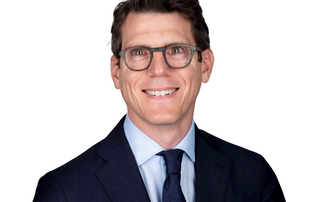It is the question the manager of every global equity fund gets asked time and time again: is this the right time to buy emerging markets? It's an important question, and the answer is "it depends". Because the ‘emerging markets' label covers such a broad range of countries in radically different political and economic circumstances it can be hard to generalise. But let's try.
I invest in companies benefiting from consistent, long-term growth trends around the world. And, to me, the attractions of emerging markets are clear. The ageing of developed markets contrasts strongly with the youthful populations of the developing world. There are, moreover, few trends more reliable than demographics. But as soon as we move beyond that superficial attraction and look at emerging markets more deeply, things become more complicated...
Take the so-called BRICs. The economies of two, Russia and Brazil, are dominated by commodity exports while India and China need to import commodities as they grow.
The case of commodities
Around half of emerging countries are large exporters of commodities. Large economies like Russia and South Africa are being hurt by lower prices for raw materials. Even the Arab states are cutting back spending to cope with lower income from oil. The recent bounce in the oil price reduces fears of a ‘credit crunch', but is not large enough to suggest any great recovery in profits. The Latin American countries, meanwhile, have their own problems. The political stability of both Venezuela and Brazil is in doubt. Their stories are different, but both start with unaffordable social programmes used to win votes funded by selling commodities. With income from commodities having fallen, dragging currencies lower in their wake, consumers in these emerging markets may struggle.
Yet while the commodity exporting countries are struggling, emerging economies that import raw materials, such as China, should benefit from lower prices. Chinese growth may have slowed, but annual GDP growth of around 5% may be sustainable for years to come and its large population should fuel growth in consumption. In India and Indonesia, government fuel subsidies were phased out as oil prices fell, allowing governments to spend more on other social programmes. The cheap fuel ‘dividend' may have been slow in manifesting itself but should boost spending eventually.
By dint of demographics
Not all emerging economies, then, react in the same way to changes in the global economy. And if the varying impact of changes in commodity prices complicate the emerging market story, so do demographics. Understanding their complexities is a necessity for any would-be investor. Take India. At first glance, its demographic profile looks excellent, particularly compared to its Chinese neighbour. The reality, however, is not so straightforward. Loyalty to regions, social caste and religious frameworks leave Indian labour highly immobile, slowing urbanisation. The most youthful populations are generally the farming communities, where improvements in health and education are modest. Meanwhile, fertility rates in the modern metropolises such as the Punjab and Bangalore are already at western levels: 1.7 children per woman in Punjab, 3.4 in Bihar. Although Mr Modi is very likely to enhance the commercial policies of Indian government in many ways, he is unlikely to challenge the labour inefficiencies implicit in a caste system.
From shampoo to shopping centres
Today, the most attractive emerging markets have growing, youthful workforces and economies that are not overly dependent on exporting commodities. As the middle classes in these countries become wealthier, they ‘trade up' to branded consumer goods. Companies that are positioned to meet that demand should enjoy strong sales growth for many years to come.
One drawback for those investors whose benchmarks oblige them to buy locally quoted companies is that valuations are still inflated. Take Godrej Consumer, India's leading hair oil company. It trades on a p/e ratio of over 30x. In contrast, most of our exposure to emerging markets takes the form of well-positioned but more modestly valued companies quoted in developed markets. If Indians follow the Edwardian British example and turn to shampoo rather than oil, Colgate Palmolive on a p/e of 20x, might well represent a better investment than Godrej. Buying global businesses such as Colgate Palmolive, of course, dilutes our exposure to emerging market consumers - but their valuations accommodate that.
The opportunities aren't confined to consumer goods companies. We find many global businesses whose emerging market divisions are contributing a growing share of their profits. A new theme for our fund in the last year has been tourism. While growth in developed market tourism is often focused on low cost airlines, outbound tourism from emerging markets is growing as more passports are issued. According to Goldman Sachs, passport numbers in China are expected to rise by 100 million this decade. In a way reminiscent of the Japanese in the 1980s, the Chinese middle classes are keen to travel, with the bulk of their travel taking place within Asia. We have investments in the companies which control Sydney Airport and Haneda Airport in Tokyo as well as Tokyu Corporation, which owns nearby shopping centres.
Beyond the label
Over the long term, it is easier for a company to grow its shareholders' wealth if it is selling its products into a growing market. This growth is often lacking in the mature economies of the developed world, but is still to be found in many emerging markets, particularly the commodity importers. In our fund, companies as diverse as Nike in sporting goods, Essilor in eyeglasses, Facebook in online advertising and Thermo Fisher in scientific equipment all have significant emerging market aspects to their growth.
So is this the right time to buy emerging markets? I believe tapping into the potential of demographic and economic change - but doing so in a smart, discriminating way - is likely to produce excellent returns over the long term. But doing that today often means looking beyond labels and index definitions: the best emerging market stocks may be closer than you think.
Simon Edelsten manages the Artemis Global Select Fund
Click here to find out more about the fund
THIS INFORMATION IS FOR PROFESSIONAL ADVISERS ONLY and should not be relied upon by retail investors.
The fund may have a concentrated portfolio of investments. The fund may invest in emerging markets. Any research and analysis in this communication has been obtained by Artemis for its own use. Although this communication is based on sources of information that Artemis believes to be reliable, no guarantee is given as to its accuracy or completeness. Any forward-looking statements are based on Artemis' current expectations and projections and are subject to change without notice. Issued by Artemis Fund Managers Ltd which is authorised and regulated by the Financial Conduct Authority.











